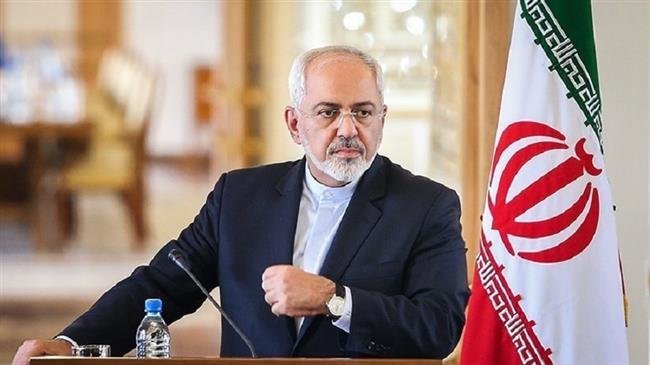Mutual respect, not mutual trust, needed for dialogue, Zarif says of U.S.

Iran is open to dialogue with the United States without preconditions, but such talks remain elusive so long as Washington fails to show Tehran respect, its Foreign Minister Mohammad Javad Zarif said on Monday.
“We do not have preconditions, but we can say that what is required for dialogue is mutual respect, not mutual confidence,” Zarif said in an interview with Kyodo News.
"Usually people (who) engage in negotiation do not necessarily have trust and confidence in each other, but it requires mutual respect," he added.
Zarif said the administration of U.S. President Donald Trump could smoothen the way for dialogue by adhering to the 2015 Iran nuclear deal that it "illegally" pulled out of earlier this year, and by halting its unilateral sanctions imposed since then -- both things that he said Washington is legally obligated to do.
Under the deal struck with six major powers -- Britain, China, France, Germany, Russia and the United States -- Iran agreed to curb its nuclear activities in exchange for the lifting of economic sanctions.
On May 8, Trump withdrew the United States from the accord, struck under his predecessor Barack Obama, and pledged "the highest level of economic sanction" against Iran.
After U.S. withdrawal, Iran has opted to stay in deal, at least for now, and cooperate with Europe to salvage it.
Zarif said if a new administration in Washington can suddenly abandon the fruit of two-and-a-half years of intensive negotiations, it brings into question whether the United States can be relied on to implement other international agreements reached with it.
Zarif says "U.S. massive illegal interference" has tried to hamper EU3 efforts to make up for withdrawal from nuclear deal."The United States has failed to respect its legal obligations, its treaty obligations," he said. "Unfortunately, the way that the United States has acted...has created conditions that would basically undermine the utility of negotiation."
On whether an Iranian withdrawal remains on the table as an option, Zarif said Tehran must determine for itself whether the economic and political benefits of staying in the deal exceed the costs.
"We will make (that) decision based on our own evaluation of (our) national security and interests," he said. "We are not working against any deadline."
Referring to efforts by Britain, France and Germany to salvage the deal through a mechanism to ensure its oil exports and banking transactions, the foreign minister said "serious measures" must be taken in that regard before Nov. 5.
That is the date set by the United States for implementation of sanctions targeting Iran's oil exports, critical to its economy.
Zarif said the three European countries that signed the deal have made commitments and proposals, but some technical details still need to be worked out, and unfortunately there has been "U.S. massive illegal interference" in the process.
"For the time being, we are selling our oil (and) we are able to maintain our economy," he said.
Zarif expressed confidence that Iran will be able to overcome sanctions imposed by the United States and its allies, considering that "many countries have shown readiness to do business with Iran."
Besides the three European countries, other countries that attach great importance to the nuclear deal, including Russia, China and Japan, "are ready to implement their part."
(Source: Kyodo News)
Leave a Comment